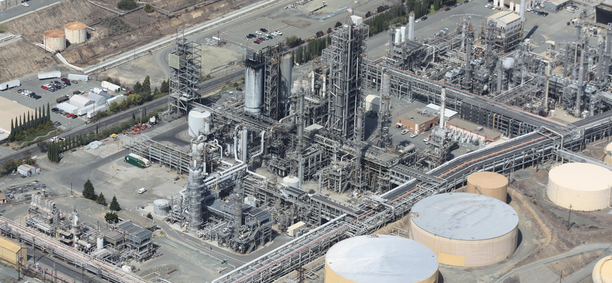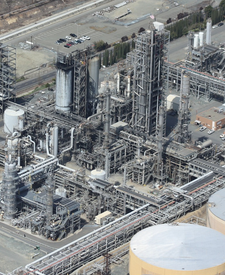How energy companies supply consumer demands
Emissions reduction and innovations have sparked an upheaval in the energy sector. This is not a comfortable environment to be, according to historians, not even for progressives, and particularly not for the "older generation." However, from the first light of the morning to the last bulb of the home, we are totally dependent on power consumption. ReviewsBird.co.uk holds numerous companies that are reviewed honestly by the consumers. This can help you in decision-making.
What is an Energy Company?
Energy suppliers act as a backup production of power, working with the distribution network to provide benefits to customers over the utility's transmission lines. Energy suppliers should own their own energy plants in a competitive marketplace. These energy companies’ main motive is to provide energy to homes and businesses for their effective and efficient working. There are Reviews about Energy Companies that you can read and make a decision.
What is the importance of an Energy Company?
Energy development is inescapably related to global well-being and productivity. A key obstacle is satisfying the rising energy requirements in a sustainable and environmentally friendly way. It is widely known that without a touch of power, the world can’t run. If we compare today with the 1990s, a difference can be seen clearly in how energy has transformed the world and how homes and businesses are working efficiently. You can also purchase green stock for making money because this sector is worth investment.
In this moment of international market confusion, one thing is for sure: the universe requires energy in larger volumes to promote good governance and improve living standards, especially in developing countries. However, supplying this power around the world comes with a commitment and accountability to effectively build and use all assets.
What are the key characteristics of the Energy Sector?
The energy sector encompasses all sectors that are engaged in the manufacture and production of goods, including energy mining, manufacture, refinement, and dissemination. Civilized life consumes a lot of energy, and the power sector is an important part of almost every country's services and infrastructure.
-
Risk Management, Optimization, and Trading
Modern power suppliers' greatest power is their willingness to participate in resources with a 20-40 year life span based on a series of short-term contracts. This is made possible by a world-class set of markets, financial reporting, optimization, and economic and creditor firm foundation. The bulk market's sophistication and uncertainty are a hurdle for younger entrants, and established energy firms will continue to have a comparative benefit over newcomers for some time.
The acceptable answer is to guarantee that institutional investors can trade power "choice" in the shape of a reasonably wide variety of products that reflect the different types of services required by the marketplace. Several alternative versions could be created to meet diverse needs, such as timely delivery and mobility, as well as the requirements of various types of capacities. -
Controlling big data
To put it another way, companies have preferred to treat their customers as if they were identities, collecting information on consumption expenditure only after the fact and with little knowledge of their requirements and preferences. The advent of widely accessible ‘Big Data' (the ability to integrate data from other sources, including social media) could provide access to much more granulated and accurate data about consumer behavior and the factors behind it.
-
Keep on track with new technological advancements
Many consumers nowadays expect real-time information and input from their smartphones or the internet. In most businesses, service quality has shifted away from call centers and toward complex techniques and web-based solutions. Power companies are adapting to this payment system, and smart apps have become increasingly popular in recent years.
Users, on the other hand, would not want constant active participation if the general economy is to become genuinely active by modifying usage behavior in response to operating conditions. Even with peak amplitude, the potential savings for most residential producers is modest. -
Trustworthy and Open to changes when required
Customers' demands do not always coincide with capital-intensive power companies' strategies. The most visible dispute is over energy efficiency rewards, which cause consumers to spend less power and, as a result, businesses to market and distribute less of their similar system. This conundrum reveals how a genuinely customer-centric energy company could pursue its consumer option.
A proper electricity supplier must establish a loyal customer base based on mutual trust and thorough ability to solve problems. It must start thinking of its service offerings as resources, noting that holdings must be effectively monitored in a long-term company to avoid being undermined.
On what basis energy companies rank?
When choosing an energy provider, customer satisfaction is a major factor to contemplate. You are more inclined to have a stress-free and overall richer outcome controlling your power generation if you choose a business with a good tracking history when it comes to customers ’ satisfaction.
-
Bill accuracy
-
Bill clarity
-
Customer service
-
Complaints handling
-
Value for money
What are the factors that affect the cost of energy?
Crucial external concerns such as market forces are pretty dynamic, but when economic and institutional variables, as well as property speculation, are added to the mix, predicting energy costs becomes more difficult.
After great research under the influence of the energy sector, it is found that there are 9 factors that truly affect the cost of energy. Following are the factors that deserve consideration:
-
Supply:
Nuclear, coal, gas, oil, and energy sources all adapt rapidly to the existing capacity (or lack thereof). This is a major contributor to price swings, which can happen on an ongoing basis.
-
Demand:
In terms of financial, technical, and productivity metrics demand for heat, ventilation, lighting, and procedures varies in proportion to suggestions.
-
Gas Storage:
This is a term for power "assets," or the discrepancy between scarcity (since electricity cannot be stored). Weekly announcements of gas shots and pulls are made, and premiums adapt appropriately.
-
Weather Forecast:
Weather forecasts, as well as real tropical storms, are key factors that influence the global market and short-term contract pricing. Longer-term prices are less affected by whether the prediction comes true.
-
Generation Changes:
While these adjustments appear to be more concentrated, they can have a substantial effect on the industries. For example, in the nuclear energy domain, prices can fluctuate in the re-licensing or maintenance of power plants. In the coal industry, transformations of coal plants to fossil fuels to prevent the costs of rinsing technologies can also cause price swings.
-
Global Markets:
Despite the huge increase in drilling activities, significant shifts in international oil flows can have an impact on industrial power costs in the United Kingdom.
-
Imports and Exports:
The cost of energy also varies on the basis of imports and exports of these necessities. It depends upon which body or infrastructure the energy company is relying on.
-
Government Regulation:
Government regulation is one of the most important factors which affect the cost of energy. These giants can change the costs of market forces quickly. In this way, energy institutions can enjoy the economic conditions and vice versa.
-
Financial Speculation:
Market volatility, like most other exchange earnings, can have a major impact on energy costs, which is the least credible driver of all. Financial speculation, which is often unseen and induces sudden swings is almost always the reason when a marketplace does not appear to be pursuing the directions signaled by supply or demand-related variables.
Attempting to catch the precise back of a marketplace unless you're a specialist stockbroker is a futile exercise. Nonetheless, with direct supervision, reaching an educated opinion about the most likely trajectory of the futures markets over the next few decades is both feasible and intended to keep your energy usage cheap.
What is the working of the UK energy market?
The UK market is the world’s biggest market which contains the “big six” in the energy suppliers sector which serves all over the UK residencies. There are three main elements of the UK energy market is:
-
Electricity Generation
In recent decades, the United Kingdom generated the majority of its electricity by consuming fossil fuels like coal and gas, but we're aggressively pushing to power generation and solar, as well as green energy and importing from other states.
-
Transporting Energy
Once produced, electricity is shipped across the nation through a network that balances market forces from houses, companies, and other users such as public infrastructure. Gas has a nationwide supply system that is analogous to that of electricity.
-
Selling Energy
We get our power and gas from vendors who purchase it in the commodities market and then offer it to us as customers. You have a choice of suppliers, and switching between them is quick if you want a good offer.
In case of any complaint, if your distributor is a member of the respective scheme – and most are – it will evaluate your claim, taking into account all parts of the situation as well as any applicable regulations.
If you approve the recommended solution, it becomes legally enforceable, and the manufacturer is required to follow it.



















